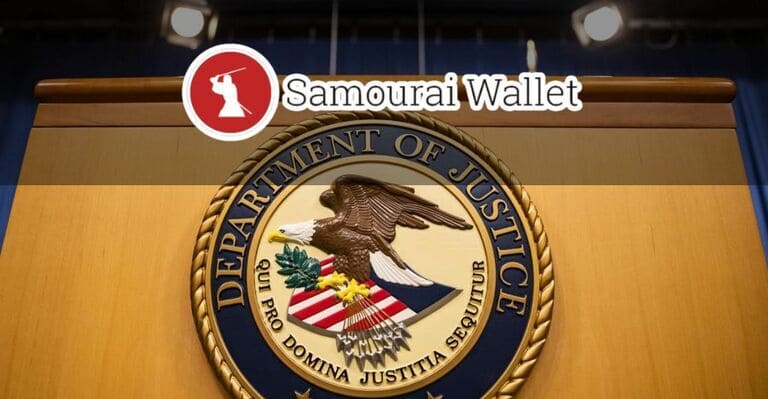TL;DR
- The case against the founders of Samourai Wallet was put on hold while defense attorneys and prosecutors consider closing it following a policy shift at the Department of Justice.
- The DOJ dismantled its crypto enforcement team and announced it would only intervene in cases of fraud or clearly defined crimes.
- Coinbase, Kraken, and 32 other firms warned Congress that the current legal interpretation risks criminalizing blockchain developers.
The court case against the founders of Samourai Wallet was temporarily suspended while prosecutors and defense attorneys assess the possibility of closing the case. The decision comes after a change in policy from the U.S. Department of Justice, which adopted a different approach to cryptocurrency-related offenses when there is no direct harm to investors or clearly defined crimes.
The formal request to extend the deadlines for pre-trial motions was submitted on April 28 before Judge Richard Berman. The attorneys for Keonne Rodriguez and William Hill, CEO and CTO of Samourai Wallet respectively, requested a 16-day extension to avoid additional expenses while it is determined whether the prosecution will proceed. The prosecution accepted the request, though it has not yet publicly stated a position on a possible dismissal.
Policy Shift at the DOJ
This case began in April 2024, when the government charged both executives with conspiracy to commit money laundering and operating an unlicensed money transmission business. Both pleaded not guilty, and the court hearing remains scheduled for November, despite this administrative delay.

The official policy shift became known through a memorandum signed on April 7 by Deputy Attorney General Todd Blanche. It announced the dissolution of the DOJ’s crypto enforcement team. The document clarified that the agency does not intend to act as a regulator of the digital asset market and will limit its interventions to cases of fraud or explicit crimes.
Will Samourai Wallet Set a Historic Precedent?
This major turn has affected more than just Samourai Wallet. Other legal proceedings, like that of SafeMoon CEO Braden John Karony, cited the same argument to try to halt charges. Additionally, software freedom advocacy groups like DeFi Education Fund asked the White House to stop prosecuting open-source developers, including the case of Roman Storm, co-founder of Tornado Cash.
Meanwhile, a coalition of 34 companies linked to the crypto industry — including Coinbase and Kraken — sent a letter to the U.S. Congress. The document warns that the legal interpretation applied in these cases could criminalize any blockchain developer, directly harming innovation in the sector.

